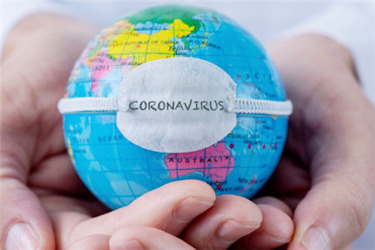Providing Water And Sanitation Access To Unhoused Populations During COVID-19 And Beyond: Guidance For Water And Wastewater Utilities
By Zoë Roller, Senior Program Manager, US Water Alliance

Unhoused populations are vulnerable to a range of public risks, including COVID-19. They lack continuous access to running water, toilets, showers, and laundry, making it extremely difficult to take proper precautions. Homeless individuals are at high risk of health conditions including hepatitis, HIV, and tuberculosis. The Department of Housing and Urban Development estimates that there are approximately 560,000 people experiencing homelessness in the US, including over 100,000 minors. These numbers may rise alongside rapidly increasing unemployment. Many Americans are at risk of losing their homes in the absence of sweeping policies to prevent eviction and foreclosure. Providing water and sanitation access to unhoused populations is a key preventative measure to protect their health and wellbeing.
The Centers for Disease Control and Prevention recommend providing access to toilets and handwashing facilities to unhoused populations to protect them and increase the overall public health of all communities. Water and wastewater utilities can play a key role. As guardians of public health, utilities have the opportunity to be leaders in connecting unhoused populations with drinking water and safe sanitation. While some utilities may not have the jurisdiction to provide these services directly, they can collaborate with other government agencies, nonprofits, and service providers to ensure that needs are met. Some utilities adopted these measures as standard practice before the onset of the COVID-19 pandemic, and they have the potential to improve public health beyond this moment of crisis.
Opportunities for Action:
- Provide hygiene stations and public restrooms. Utilities can install handwashing stations, mobile showers, and portable toilets at encampments to allow residents to maintain hygiene.
- Examples:
- Seattle Public Utilities (SPU) is focused on increasing access to hygiene facilities at a time when libraries, community centers, and other public facilities are closed. SPU, in partnership with other city departments, has deployed additional toilets, handwashing stations, and shower trailers near encampments throughout the city. These facilities are open every day and are maintained regularly.
- The City of San Francisco is providing handwashing stations and toilets, and partnering with resource centers that provide showers and laundry.
- The City of Los Angeles is providing handwashing stations and showers.
- The City of Austin is providing handwashing stations, showers, and toilets.
- Provide drinking water access. Utilities can provide access to drinking water, particularly during summer heat waves and while public spaces with drinking fountains (such as parks, libraries, and community centers) are closed due to the pandemic. Measures can include drinking fountains and hydration stations to refill reusable bottles.
- Example:
- Los Angeles Department of Public Works periodically converts fire hydrants into public drinking fountains for encampments. While these are temporary measures, they could provide a valuable service year-round.
- Distribute hygiene supplies. Utilities can also distribute hand sanitizer, wipes, soap, and other hygiene supplies to encampments for additional protection. They can work with other departments to ensure public restrooms that remain open are well stocked with soap and other supplies.
- Example:
- Philadelphia’s Office of Homeless Services is distributing sanitizer and wipes.
- Provide wastewater services for people living in vehicles. Many cities have significant unhoused populations living in cars and RVS. Utilities can assist with providing adequate wastewater services to RVs, improving conditions for unhoused residents and preventing wastewater spills.
- Example:
- Seattle Public Utilities RV Wastewater Pilot program aims to address sanitation and water quality concerns from wastewater spills associated with people living in their vehicles. The program provides mobile wastewater services by partnering with private septic haulers to pump out RV wastewater tanks on a monthly basis. The pilot has had good initial success at reducing the number and severity of spill incidents. SPU is in the process of testing alternative methods of service delivery and deepening partnerships with community non-profit social service providers to ensure the continued success of the pilot.
- Suspend punitive measures. Unhoused individuals often face punitive measures such as being cited for public urination or having their tents, documents, and other possessions thrown out in sweeps. In some cases, sweeps are accompanied by police presence and harassment. These measures make it more difficult for unhoused people to maintain stability and seek assistance. Utilities and other city agencies can provide trash cleanup services as requested by unhoused communities, while leaving people’s property and avoiding police presence.
- Expand housing options. Unhoused people need housing to stay healthy, and existing shelters are overcrowded. Utilities and other agencies can advocate for converting public buildings, unused sites, and hotels into additional shelters. Shelters should be configured to permit social distancing and include isolation areas for sick individuals.
- Examples:
- The City of Los Angeles deployed city workers to convert recreation centers into shelters, providing an additional 7,000 beds.
- The City of Washington, DC is placing homeless families in temporary housing during the crisis.
- Santa Clara County converted a fairgrounds into a homeless shelter with a testing site, water and sewer hookups, and trailers.
Further Resources:
- US Department of Housing and Urban Development toolkit on infectious disease response for homeless populations
- Centers for Disease Control guidance for homeless service providers
- US Water Alliance and DigDeep report: Closing the Water Access Gap in the United States
- Pacific Institute report: Plumbing the Depths: Californians Without Toilets and Running Water
